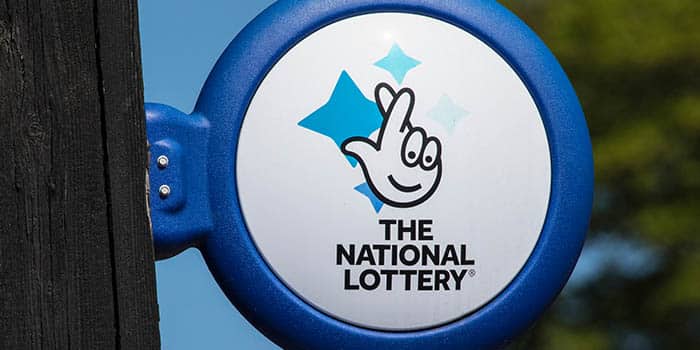- Casino
- By State
- Alabama
- Alaska
- Arizona
- Arkansas
- California
- Colorado
- Connecticut
- Delaware
- Georgia
- Florida
- Hawaii
- Idaho
- Illinois
- Indiana
- Iowa
- Kansas
- Kentucky
- Louisiana
- Maine
- Massachusetts
- Maryland
- Michigan
- Minnesota
- Mississippi
- Missouri
- Montana
- Nebraska
- Nevada
- New Hampshire
- New Jersey
- New Mexico
- New York
- North Carolina
- North Dakota
- Ohio
- Oklahoma
- Oregon
- Pennsylvania
- Rhode Island
- South Carolina
- South Dakota
- Tennessee
- Texas
- Utah
- Vermont
- Virginia
- Washington
- West Virginia
- Wisconsin
- Wyoming
- By State
- Slots
- Poker
- Sports
- Esports
Fact-checked by Angel Hristov
New Legislation Overhauls Ontario’s iGaming Landscape
The update aims to resolve a potential conflict of interest, ensuring iGaming Ontario’s operations remain transparent and in line with regulations

The gaming landscape in Ontario is about to undergo significant changes following the passage of Bill 216, which introduces the iGaming Ontario Act. This legislation dissolves the parent-subsidiary relationship between the Alcohol and Gaming Commission of Ontario (AGCO) and iGaming Ontario (iGO), transforming iGO into a standalone entity governed by an independent board.
An Independent iGO Is a Natural Evolution
Since its inception in July 2021, iGO has been a subsidiary of the AGCO per the Alcohol and Gaming Commission of Ontario Act 2019. However, Schedule 9 of Bill 216, passed on 6 November 2024, revokes this arrangement. According to a recent report by Canadian Gaming Business, the iGaming Ontario Act should come into force at the beginning of 2025, significantly altering the region’s gambling landscape.
Under the new framework, iGO will operate autonomously without AGCO’s oversight. This shift aims to strengthen iGO’s governance and address a potential conflict of interest highlighted by Ontario’s Auditor General. A spokesperson for Ontario’s Attorney General, Doug Downey, welcomed this update, noting it was necessary to ensure the continued success of Ontario’s growing iGaming market.
This change would strengthen iGO’s governance and accountability structure and position the agency as a competitive employer, addressing a conflict-of-interest concern.
Ontario Attorney General spokesperson
This separation marks a strategic pivot as Ontario’s gaming market matures. Since opening to private operators in April 2022, iGO has managed commercial competitors while AGCO has maintained its regulatory role. The split enables iGO to focus on expanding its market share and operational efficiency without perceived conflicts with AGCO’s oversight responsibilities.
The Move Could Have Significant Implications
Despite this shift, the AGCO will continue to regulate Ontario’s gaming industry, including offerings from the Ontario Lottery and Gaming Corporation (OLG) and other commercial operators. As iGO transitions to a standalone entity, the move signals Ontario’s commitment to refining its gaming infrastructure. By addressing governance challenges and adapting to market demands, the province aims to remain ahead of industry trends.
The move comes as Ontario’s iGaming market retains steady growth. iGO’s Q1 2024-25 fiscal report revealed impressive metrics. iGaming handle for the period skyrocketed to CAD 18.4 billion ($13.3 billion), up 31% from CAD 14 billion in Q1 2023-24. iGO revealed there were almost 1.9 million active player accounts, highlighting a significant increase in iGaming activity.
With robust growth indicators and a more agile structure, iGO is well-positioned to leverage its H1 momentum. As other Canadian provinces seek to emulate Ontario’s iGaming success, this development could have far-reaching implications, serving as a blueprint for how other jurisdictions implement regulated online wagering and navigate evolving industry complexities.
Related Topics:
Deyan is an experienced writer, analyst, and seeker of forbidden lore. He has approximate knowledge about many things, which he is always willing to apply when researching and preparing his articles. With a degree in Copy-editing and Proofreading, Deyan is able to ensure that his work writing for Gambling News is always up to scratch.
Previous Article

Industry
November 20, 2024
EveryMatrix, BetBlocker & RGF Malta Team Up to Translate BetBlocker into Maltese

Next Article


Industry
November 20, 2024
Catskill OTB to Shut Down After 48 Years Due to Financial Struggles
Must Read
Industry
June 27, 2025
Las Vegas Sphere Bashed for Charging $170 for Pizza
More Articles






Industry
June 30, 2025
New Zealand Presses On with iGaming Legislation

Casino
June 30, 2025
Vietnam Greenlights $2B Van Don Casino Resort

Casino
June 30, 2025
Hard Rock Executive Under Fire Due to Alleged Misdeeds

Industry
June 27, 2025
Gambling Harm Costs Victoria, Australia, Over $9B

Industry
June 26, 2025
Spain’s Gambling Ad Ban Cuts New Accounts by 55%










